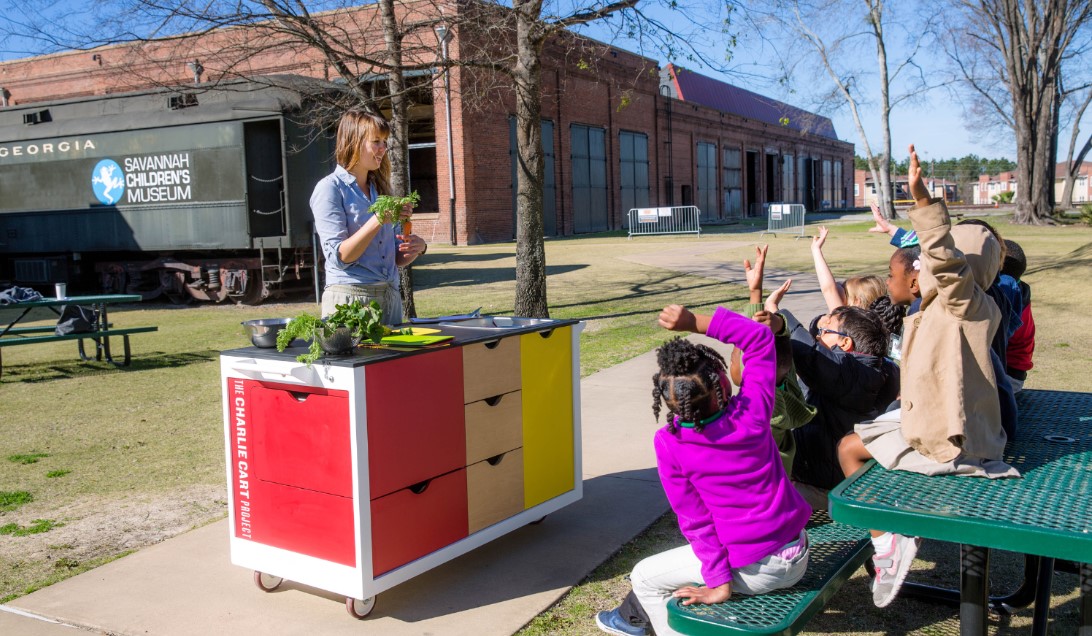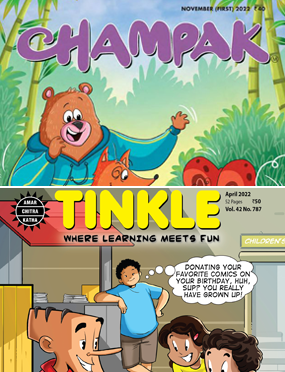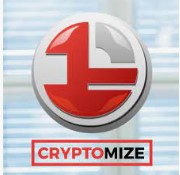
The Charlie Cart Project is working to inspire food education across 47 states through comprehensive, hands-on programming. The project is currently providing a kitchen on wheels to schools, libraries, food banks, and farmers’ markets, among other community organizations.
“Many schools lack the resources to build out a full teaching kitchen. So I thought, if you can’t bring the kids to the kitchen, why not bring the kitchen to the kids?” Carolyn Federman, the founder of the Charlie Cart Project tells Food Tank.
Federman launched The Charlie Cart Project in 2015 after seeing the impact of food education through her work at Edible Schoolyard. She found that even in the communities with fresh produce, many kids were lacking knowledge of common fruits and vegetables.
The Charlie Cart Project curriculum provides full lesson plans to support cooking skills and aims to weave in connections between personal health and the health of the planet.
Federman highlights how the food education work at Charlie Cart Project is a critical component of food access.
“People cannot make use of fresh produce if they don’t know how to select and prepare it, and they will not take advantage of it if it’s not familiar,” Federman says. “So, we are focused on providing that information and exposure as deeply and widely across the country as possible.”
The recent expiration of pandemic-era boosts to Supplemental Nutrition Assistance Program (SNAP) benefits and the universal school lunch program poses hardship for many. Federman believes these expirations echo general challenges in government funded programs and hopes the Charlie Cart project can highlight the power of community-led decision making.
“We are working to facilitate partnerships across organizations at the local level, to build sustainability and shared investment in food education programs community-wide, so these programs can become institutionalized,” Federman explains to Food Tank.
The Charlie Cart Project is currently working on a three-year evaluation with support from the Vitamix Foundation. According to Federman, anecdotal evidence reveals that the program is exposing children to new foods and increasing knowledge and openness to these foods. In a rural Alaska native village, for example, they have seen increases in student attendance since introducing Charlie Cart cooking lessons.
“An early evaluation by Johns Hopkins showed that 84 percent of children in a Charlie Cart lesson tried a new food; 38 percent asked their parents to purchase the food and/or make that recipe at home,” Federman reports.
As Federman and the rest of the Charlie Cart team look to the future, they hope the affordable, portable, and comprehensive nature of their program can support its scalability.
“Food education is the long game,” Federman tells Food Tank. “Over time, with enough programming for youth and families across a community, demand for access to fresh produce and cooking skills will grow.”










